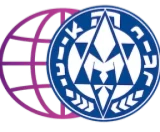By: Mato Wexler
Sukkot is one of the three holy days, on which the pilgrimage to Jerusalem is traditionally customary, and in which the Jewish families and communities of the world meet under the same temporary roof for a week. Of course, the fact that it is temporary does not prevent us from wanting to build the Sukkah, decorate it and transform it into a pleasant and welcoming place, ready to receive guests (ushpizin) and share wonderful moments with them.
There is no doubt that Sukkot is a chag to be in family and in community, and as such, a great opportunity to reflect and learn. This year, Sukkot will be different all over the world, like many other things that we were used to and found “normal” and stable. Today, based on everything that happens in these times of pandemic, we understand that before seeing only the goal, which we want to reach, perhaps we must begin to think and enjoy our own path even more.
What does this have to do with Sukkot?
As you all may recall, Bnei Israel in their ¨journey through the desert¨ (“Masa Bamidbar”), set out on a road to Eretz Israel, perhaps with more uncertainties than certainties, but, convinced that it was what they needed to do to reach “the Promised Land”. Many started the course because they believed in the word of G-d, others perhaps because they wanted to change their destiny, but what they all had in common is that they were seeking freedom and being able to settle in Eretz Israel, the goal, the final destination. The Sukkah, in this context, was then something transitory, a place to stop momentarily, rest, take refuge and regain energy to continue the journey. The Sukkah was temporary because the goal was to settle in Eretz Israel. Despite this, history tells us that the generation of Bnei Israel that left Egypt and knew slavery, spent the rest of their lives walking towards the destination, the stable destination, but never arrived. In other words, they “spent their entire lives” trying to reach the final goal.
And here, it is worth asking ourselves: What is more important- the path or the goal?
On the one hand, and returning to Sukkot, tradition invites us to build a temporary space: a Sukah, to take some time, to slow down. We can think that in this ritual there is an attempt to give special meaning to the path, rather than to the goal. Because, if the main goal is the Sukah, the “Arbaat Haminim” (the Four Species), the “ushpizim” and sharing time together under the Sukah, we could say that the construction of the Sukkah and the decoration (kishut) are not relevant. However, it is the opposite, precisely the construction and decoration are what make this great objective different, special and allow us to have a significant family, community, cultural and religious experience. If Bnei Israel dedicated their lives to that great goal, what meaning would life have had if they did not “value” the path?
On the other hand, there are those who can say: in the end, all efforts were dedicated to reaching a certain destination. And if we don’t succeed, then nothing that happened makes sense, because the efforts were in vain. Following our comparison with Bnei Israel we could suggest: perhaps Bnei Israel learned and grew a lot over the 40 years in the desert, but what good was it if they could never enter Eretz Israel?
There is a third possible answer: both the path and the goal are important, but even more, it is important who accompanies us in the process of getting from one point to another.
Without a doubt, it is important and necessary to have great goals, to have ambition and to fight for them. The problem is when we pursue big goals and forget about the small but significant things that happen to us as we try to achieve them. Because, unfortunately, whether in “normal” times or in a pandemic, sometimes we forget to enjoy the journey. And it is precisely there, when the people who accompany us in the journey of life, allow us to take things in proportion. Sometimes, in happy moments, taking advantage and enjoying the present, and unique moments that will not return. Sometimes in challenging situations, encouraging us to focus on our dreams and goals to achieve.
I believe that one of the greatness of our Tnua is that both madrichim and madrichot manage to be those people who accompany our chanichim and chanichot along the personal path and in the Tnua, towards personal and collective goals. And although our bond begins as rather transitory, for a certain period, there are many times when that bond transcends time and space and remains fixed and stable, strong and secure despite all the challenges and difficulties. that may arise along the way.
We hope that this special Sukkot in times of pandemic, we can value the way until things normalize, we hope to be able to rethink our great goals and objectives and not least, achieve even from a distance, surround ourselves with those people who will allow us to do our fantastic journey richer, fun and meaningful.
Chag Sukkot Sameach!











